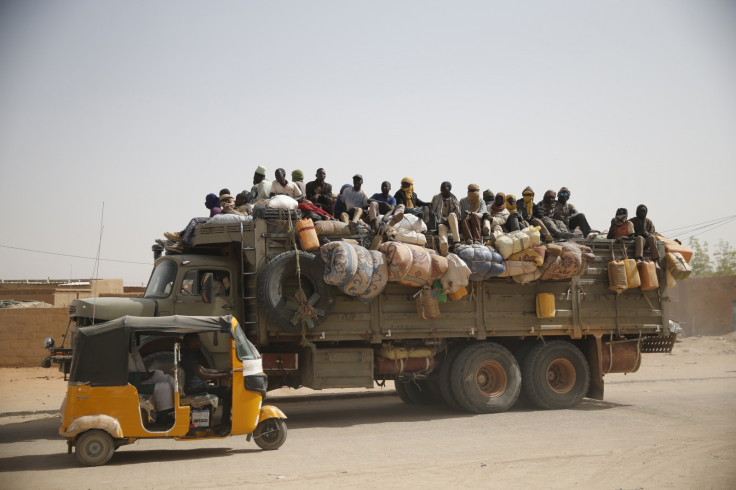Escape from 'the hell': Thousands of Nigerians facing rape and slavery in Libya returning home
An estimated 5,500 Nigerians are set to be flown back in the next three weeks.
The Nigerian government has begun its large-scale evacuation of thousands of its citizens from the conflict-torn Libya. A vast majority of Nigerians are under severe traumatic conditions and have suffered endemic abuse in the North African country, which is often used as a launchpad by immigrants to travel to Europe seeking a better living. The scale of atrocities is such that many trafficked victims have described the country "a hell".
Citizens of Nigeria, the African continent's most populated nation, are thought to make the largest group of migrants travelling to Libya. Unfortunately, they often end up at the hands of torturous human traffickers in the region as they try to cross the Mediterranean Sea to reach Europe. They frequently get trapped in Libya after being confronted either by local Islamist factions or the coast guard.
Little less than 500 Nigerians were brought in by the government in the first round of evacuation on Sunday (7 January) as they landed in one of the chartered flights. Pregnant women were also among the evacuees. Most of the evacuees, which also included pregnant women, looked emaciated due to lack of food inside detention centres. The operation is expected to last nearly three weeks.The rescued individuals were fed rice immediately on their arrival.
The Nigerian administration has promised rehabilitation measures to get the victims on their feet. "They talked about various abuse - systematic, endemic, and exploitation of all kinds. There were obviously interests that wanted to keep as many of them there as possible because they were commodities," said Nigeria's Foreign Affairs Minister Geoffrey Onyeama.
"The president had made provisions for every logistics to make sure that we bring you back from Libya," he said adding that rehabilitation efforts will be undertaken and the government will also help the evacuees in securing jobs in their home country. An estimated 5,500 Nigerians are to be flown from Libya in the coming weeks.
"We saw the inhuman condition you went through; we saw the traumatic condition. Despite the inhuman conditions you were subjected to, you comported yourselves in a very responsible manner," said the Nigerian minister. "We know that many of you were trafficked. We will make provisions to rehabilitate you to enable you to get good jobs. You have exhibited self-control. We will not abandon you."
Another challenge to the Nigerian government is that many territories in Libya are controlled by multiple power-centres, which happen to be Islamist factions in some cases, which makes it hard for any kind of negotiations.
Onyeama, who earlier led a fact-finding mission to Tripoli, expressed shock and displeasure at the conditions of illegal migrants who were snared in the country and promised to bring them back. "We got reports of extortion, beating, outright killing in anger, violation of rights and all forms of inhuman treatment. The delegation protested to the Libyan government," said Abike Dabiri-Erewa, a member of the delegation.
Many of the Nigerian victims were stuck for several months or even years in Libya with no ray of hope until the evacuation procedures. "We were arrested and kept in an underground cell since last month. Inside the prison, we met some of our Nigerian brothers, who had been there for up to three years, four years, six months, nine months. Nigerians are going to hell in that place. We were fed once a day with something that looked like the bottom of a water bottle," 42-year-old Lucky Iyanusa, one of the returnees, was quoted as saying.























